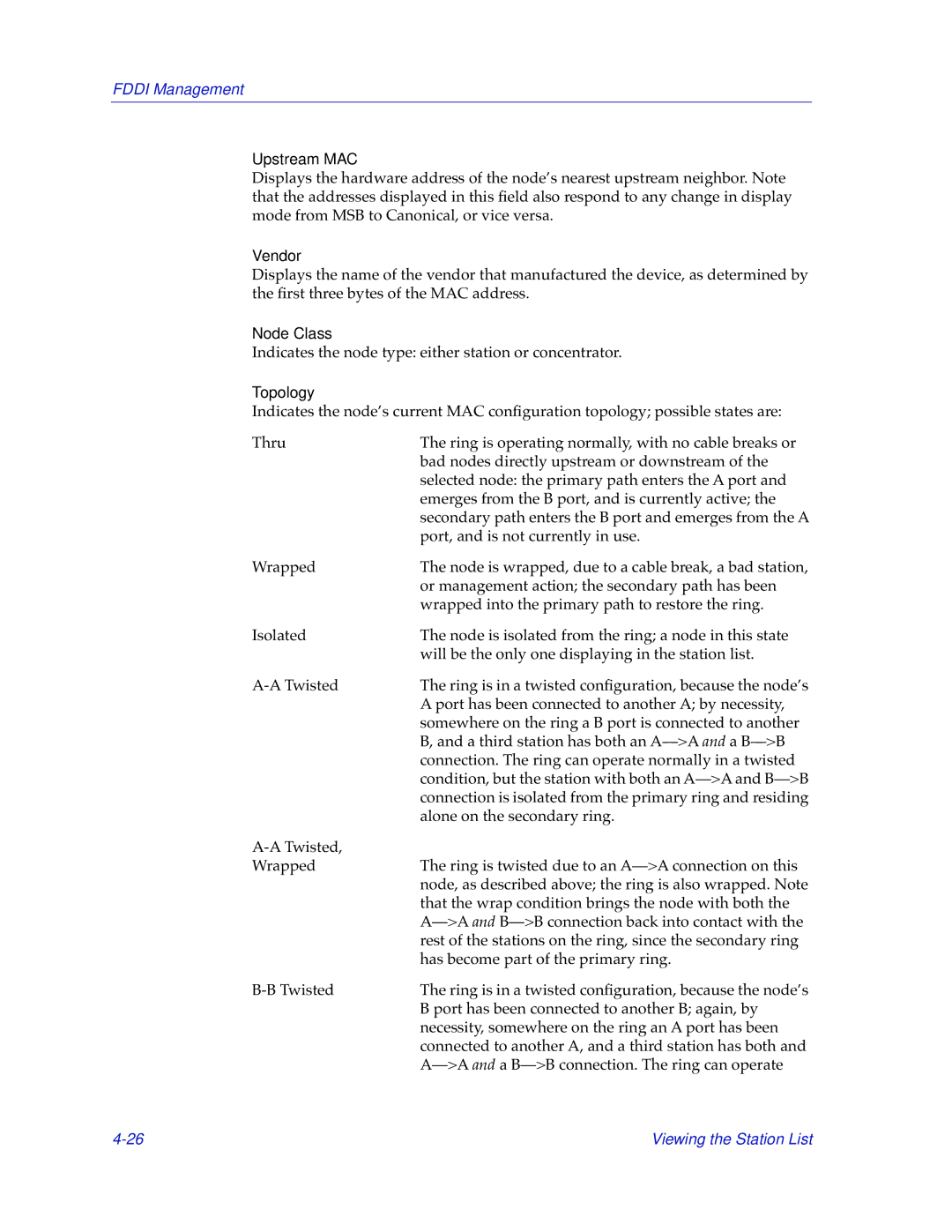FDDI Management
Upstream MAC
Displays the hardware address of the node’s nearest upstream neighbor. Note that the addresses displayed in this field also respond to any change in display mode from MSB to Canonical, or vice versa.
Vendor
Displays the name of the vendor that manufactured the device, as determined by the first three bytes of the MAC address.
Node Class
Indicates the node type: either station or concentrator.
Topology
Indicates the node’s current MAC configuration topology; possible states are:
Thru | The ring is operating normally, with no cable breaks or |
| bad nodes directly upstream or downstream of the |
| selected node: the primary path enters the A port and |
| emerges from the B port, and is currently active; the |
| secondary path enters the B port and emerges from the A |
| port, and is not currently in use. |
Wrapped | The node is wrapped, due to a cable break, a bad station, |
| or management action; the secondary path has been |
| wrapped into the primary path to restore the ring. |
Isolated | The node is isolated from the ring; a node in this state |
| will be the only one displaying in the station list. |
The ring is in a twisted configuration, because the node’s | |
| A port has been connected to another A; by necessity, |
| somewhere on the ring a B port is connected to another |
| B, and a third station has both an |
| connection. The ring can operate normally in a twisted |
| condition, but the station with both an |
| connection is isolated from the primary ring and residing |
| alone on the secondary ring. |
| |
Wrapped | The ring is twisted due to an |
| node, as described above; the ring is also wrapped. Note |
| that the wrap condition brings the node with both the |
| |
| rest of the stations on the ring, since the secondary ring |
| has become part of the primary ring. |
The ring is in a twisted configuration, because the node’s | |
| B port has been connected to another B; again, by |
| necessity, somewhere on the ring an A port has been |
| connected to another A, and a third station has both and |
|
Viewing the Station List |
